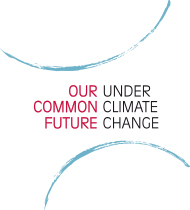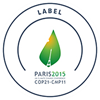Organizers: INCAE Business School, San Jos´┐Ż, Costa Rica; The World Bank, Washington D.C., USA
Date: July 3, 2015
Time: 9:00 am - 12:00 pm (CST)
Location:´┐Ż INCAE Business School, Costa Rica address
Expected number of participants: 200
Nature of participants:´┐Ż Climate change professionals, policymakers, scientists, public in general
Keywords: Climate Change, Science, Policy Decisions, MOOC
Language: Spanish
Keynote speakers:
- Erick Fernandes, Consejero de Agricultura, Bosques y Cambio Clim´┐Żtico en el Banco Mundial, Estados Unidos.´┐Ż´┐Ż´┐Ż ´┐Ż´┐Ż´┐Ż´┐Ż
- Patricia Ram´┐Żrez, Secretaria Ejecutiva del Comit´┐Ż Regional de Recursos Hidr´┐Żulicos (CRRH), Costa Rica.´┐Ż´┐Ż
- Raffaele Vignola, Director de la C´┐Żtedra Latinoamericana de Decisiones Ambientales para el Cambio Global (CLADA) del CATIE, Costa Rica.
- Ana Mar´┐Ża Majano, Coordinadora de la Secretar´┐Ża de la Plataforma Regional LEDS LAC, Centro Latinoamericano para la Competitividad y el Desarrollo Sostenible (CLACDS), INCAE Business School.
- Fernando Tudela Abad, Ex Subsecretario de Planeaci´┐Żn y Pol´┐Żtica Ambiental del Gobierno Federal Mexicano y negociador de M´┐Żxico ante la Convenci´┐Żn Marco de las Naciones Unidas sobre el Cambio Clim´┐Żtico.
- Pascal Girot, Coordinador Sectorial de Cambio Clim´┐Żtico, MINAE, Costa Rica.



